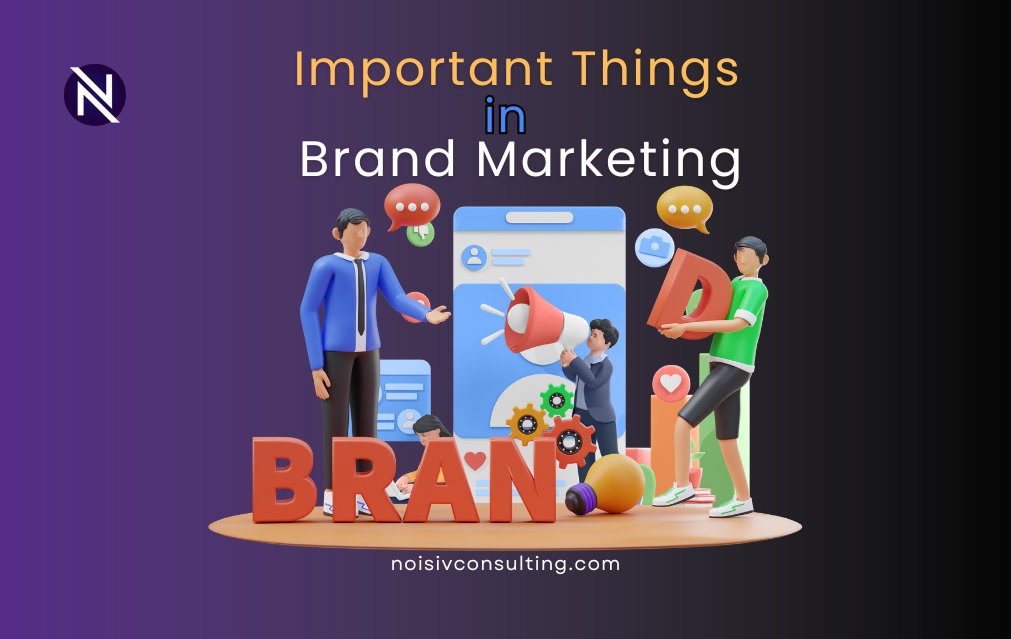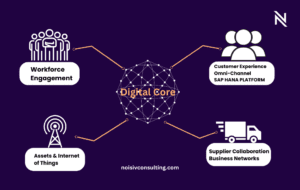Mastering the Art of Brand Marketing: Essential Components for Success
In the dynamic landscape of modern business, where competition is fierce and consumer attention is fleeting, brand marketing stands as the cornerstone of success. It’s not merely about selling a product or service; it’s about crafting a compelling narrative, forging emotional connections, and building a loyal community of advocates. To navigate this terrain effectively, businesses must understand and prioritize the essential components of brand marketing. Let’s explore these critical elements in greater detail:
Brand Identity and Positioning:
Your brand identity is the heart and soul of your business. It encompasses everything from your mission and values to your visual identity and personality. Establishing a strong brand identity not only sets you apart from competitors but also fosters trust and loyalty among consumers. Equally important is your brand positioning—how you position your brand in the minds of your target audience relative to competitors. A clear and distinct positioning statement helps define your unique value proposition and guides all marketing efforts.
Target Audience Research and Segmentation:
To effectively market your brand, you must first understand your audience inside and out. Conducting thorough market research allows you to identify your target demographic, their needs, preferences, pain points, and purchasing behaviors. Utilize segmentation strategies to tailor your messaging and offerings to specific audience segments, ensuring relevance and resonance.
Compelling Storytelling and Brand Narrative:
Storytelling is a powerful tool for building emotional connections with your audience. Your brand narrative should go beyond product features and benefits to communicate the deeper purpose and values that drive your business. By weaving a compelling story that resonates with consumers on a human level, you can create lasting impressions and foster brand loyalty.
Consistent Branding Across Channels:
Consistency is key in brand marketing. From your logo and color palette to your tone of voice and messaging, maintaining a cohesive brand identity across all touchpoints is essential for brand recognition and recall. Whether it’s your website, social media profiles, packaging, or advertising campaigns, ensure that your branding remains consistent to reinforce your brand’s image and values.
Unique Value Proposition (UVP):
Your unique value proposition is what sets your brand apart from competitors and communicates the specific benefit or solution you offer to consumers. Articulate your UVP clearly and succinctly to highlight why customers should choose your brand over others. Focus on the unique features, benefits, or experiences that differentiate your brand and resonate with your target audience.
Emotional Branding and Consumer Engagement:
Emotions play a significant role in consumer decision-making. By tapping into the power of emotional branding, you can create meaningful connections with your audience and foster brand loyalty. Whether it’s through storytelling, evocative visuals, or experiential marketing, strive to evoke positive emotions that resonate with your target audience and drive engagement.
Omni-channel Presence and Integrated Marketing:
In today’s digital age, consumers interact with brands across multiple channels and platforms. A strong omni-channel presence ensures that your brand maintains a consistent and cohesive presence wherever your audience may be—whether it’s on social media, search engines, email, or offline channels. Adopt an integrated marketing approach that seamlessly integrates various channels and touchpoints to deliver a unified brand experience.
Customer Experience (CX) and Relationship Building:
The customer experience is paramount in brand marketing. Every interaction a customer has with your brand—whether it’s browsing your website, making a purchase, or seeking customer support—shapes their perception of your brand. Prioritize delivering exceptional customer experiences at every touchpoint to build trust, loyalty, and advocacy among your customer base. Invest in personalized communication, responsive customer service, and post-purchase engagement to nurture long-term relationships with your audience.
Data-Driven Strategies and Performance Measurement:
Data is a powerful asset in brand marketing, providing valuable insights into consumer behavior, preferences, and trends. Leverage data analytics tools to track key performance indicators (KPIs), measure the effectiveness of your marketing campaigns, and optimize your strategies for better results. By analyzing data and staying informed about market dynamics, you can make data-driven decisions that drive business growth and profitability.
Continuous Innovation and Adaptation:
The landscape of brand marketing is constantly evolving, driven by technological advancements, shifting consumer preferences, and competitive pressures. To stay ahead of the curve, businesses must embrace a culture of continuous innovation and adaptation. Experiment with new technologies, channels, and strategies to keep your brand fresh, relevant, and competitive in the marketplace.
In conclusion, brand marketing is a multifaceted discipline that requires careful planning, creativity, and strategic execution. By focusing on these essential components—brand identity, target audience research, storytelling, consistent branding, UVP, emotional branding, omni-channel presence, CX, data-driven strategies, and innovation—you can build a strong and resilient brand that resonates with consumers, drives engagement, and fosters long-term success.








